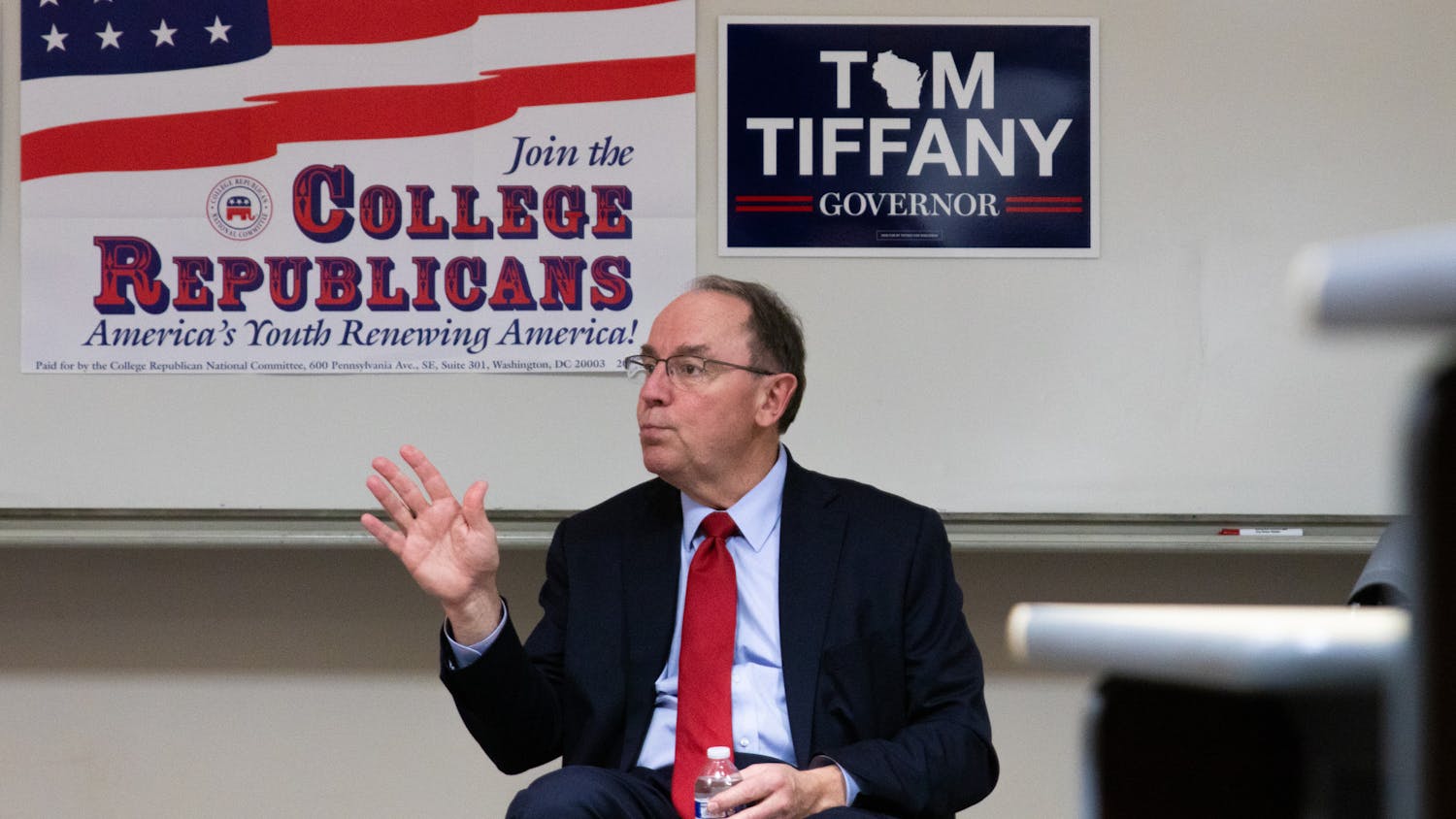UW-Madison law professors Keith Findley and John Pray, co-directors of the Wisconsin Innocence Project, led a lively discussion on the death penalty Wednesday at the first of this semester's Roundtable Lunches at the Memorial Union.
The Wisconsin Innocence Project, founded in 1998, is a program for law students to examine death penalty-worthy convictions and, if contrary evidence exists, work to overturn them.
Findley and Pray told of two recent success stories. One case, the wrongful conviction of Steven Avery for a brutal assault and rape in Manitowoc County, was overturned on the basis of an 18-year-old sample of pubic hair taken from the victim when the crime was committed. In fact, said Findley, 141 inmates' convictions have been overturned on the basis of DNA evidence in the past decade.
\Steven Avery is not an isolated story,"" Findley said. ""He isn't the first person who has gone through this experience and he isn't the last.""
Pray looked at the case of Christopher Ochoa, who was convicted based on a confession he made during an interrogation which included death threats by the detective. Ochoa's questioners reportedly claimed he would be ""fresh meat"" in prison if he did not confess. Though the real perpetrator of the crime repeatedly told officials he was guilty, courts held Ochoa's confession higher than the guilty party's, Pray said.
""Innocent people, even mentally healthy people, can confess to crimes they didn't do,"" Pray explained.
Fully 25 percent of wrongful convictions are based on an innocent person's confession, according to the speakers, and 85 percent result from mistaken eyewitness identification.
But Findley said establishing correct convictions is a matter of public safety.
""In each of these cases in which we convict the wrong person, the perpetrator runs free,"" Findley said.
The speakers concluded that, though DNA evidence is a powerful tool, it is not a panacea because it does not exist in every case and it can be manipulated.
""Bad science that is either fraudulent or misleading is a factor in about a third of [wrongful conviction] cases,"" Pray said.
Madison resident Mary Ann Phalen attended the luncheon and said it piqued her interest in becoming involved against the death penalty.
""I think that having the government control the decision over someone's life is an enormous responsibility, and I don't think we look at enough other options,"" Phalen said.





